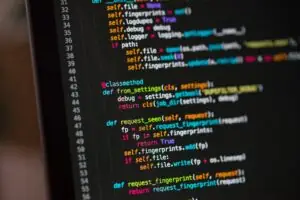In the vast realm of computer programming, variables play a fundamental role. They are the building blocks of any program, including those written in the popular programming language, C. In this article, we will delve deep into the concept of variables in programming, exploring their significance, usage, and how they relate to the object-oriented paradigm. So, let’s embark on this journey to unravel the world of variables in C programming.
What is a Variable?
A variable, in programming, is like a container that holds information or data. It’s a named memory location that can store different values during the execution of a program. These values can change, depending on conditions or information provided to the program, making variables incredibly versatile.
Programming languages like C rely heavily on variables to manipulate and manage data. Whether you’re dealing with integers, characters, or more complex data structures, variables act as placeholders, enabling programmers to work with information effectively.
The Role of Variables in C Programming
C, as a powerful and widely used programming language, leverages variables extensively. Let’s examine how variables are employed in C and why they are crucial in this context.
- Storing Data. Variables in C are primarily used to store data. Whether you’re working with simple numeric values, characters, or complex structures, you’ll need variables to hold this information during program execution.
- Manipulating Values. Variables allow programmers to manipulate and modify data. You can perform various operations on stored values, such as addition, subtraction, or comparison, using variables as operands.
- Dynamic Behavior. Unlike some languages, C allows for dynamic typing, meaning variables can change their data type during runtime. This flexibility is valuable in certain situations, but it also demands careful programming to prevent errors.
- Scope and Lifetime. Variables in C have scope and lifetime. Scope defines where in the program a variable is accessible, while lifetime determines how long the variable exists in memory. Understanding these concepts is essential for efficient memory management.
- Data Types. C offers various data types, such as int, char, float, and more. These data types are associated with variables and define the kind of data a variable can store. It’s essential to choose the appropriate data type to conserve memory and ensure accurate representation of data.
Object-Oriented Influence
While C is not typically considered an object-oriented programming (OOP) language, it does incorporate some object-oriented principles, especially when working with structures and classes. Let’s explore how variables are related to the object-oriented paradigm in C.
In C, structures provide a way to encapsulate related data under a single variable name. These structures can be thought of as rudimentary classes, allowing programmers to create user-defined data types with associated properties and methods.
For instance, consider a simple C program that models a rectangle using a structure:
struct Rectangle {
int width;
int height;
};Here, struct Rectangle defines a user-defined data type with two members: width and height. These members act as variables within the structure, enabling the programmer to work with rectangles more intuitively.
Variables within structures can also be of user-defined data types or other structures, facilitating the creation of complex data structures. This capability aligns with the object-oriented concept of composing objects from simpler components, enhancing code modularity and reusability.
The Role of Variables in Object-Oriented C
In object-oriented C, variables play a pivotal role in creating and managing objects. Objects are instances of user-defined data types, similar to classes in traditional OOP languages. These objects can contain variables (attributes) and functions (methods) that operate on the object’s data.
Consider the following example of a simplified object-oriented approach in C:
struct Circle {
double radius;
};
// Function to calculate the area of a Circle object
double calculateArea(struct Circle* c) {
return 3.14159265359 * c->radius * c->radius;
}In this case, we’ve defined a structure struct Circle to represent a circle, with the radius variable as its attribute. The calculateArea function takes a pointer to a Circle object and uses the radius variable to compute the area.
By encapsulating data and functions within structures, this approach mirrors the encapsulation aspect of object-oriented programming. It allows for cleaner and more organized code, enhancing readability and maintainability.
Conclusion
In the world of programming, variables are the linchpin that holds data and code together. In the context of the C programming language, variables are indispensable for storing, manipulating, and managing data efficiently. While C may not be a full-fledged object-oriented language, it still incorporates object-oriented principles, demonstrating the adaptability and versatility of variables in diverse programming paradigms.
As you continue your journey in programming, remember that mastering variables is essential to becoming a proficient coder. They are the foundation upon which you’ll build your programs, and understanding their role and significance is a crucial step toward programming excellence.
FAQ
Follow us on Reddit for more insights and updates.





Comments (0)
Welcome to A*Help comments!
We’re all about debate and discussion at A*Help.
We value the diverse opinions of users, so you may find points of view that you don’t agree with. And that’s cool. However, there are certain things we’re not OK with: attempts to manipulate our data in any way, for example, or the posting of discriminative, offensive, hateful, or disparaging material.